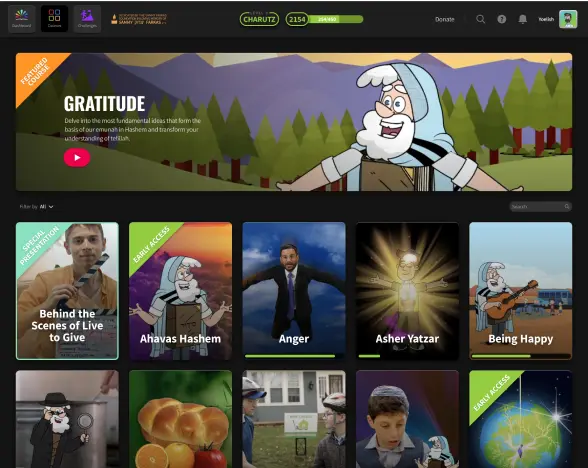Words as Weapons: Unlocking the Power of Speech for Good
Have you ever walked away from a conversation feeling ten feet tall—just because someone spoke a few encouraging words to you? Or, on the flip side, have you ever felt like you shriveled inside after someone’s unkind comment? We all know that the tongue doesn’t take up much space in the body, but wow, can it pack a punch! Why is it that words can lift us to the heavens or bring us down in an instant? Let’s explore the real “Weapon of War” we carry with us every day—and how to wield it for peace and growth.
The Psychology of Words and Ancient Wisdom
Modern psychology tells us that words can literally rewire our brains. Research into “verbal abuse” shows that negative speech can light up the same pain centers in the brain as physical harm. But positive feedback? It boosts our confidence, motivates us, and helps us connect. Jewish tradition always knew that speech is no trivial matter! The Chofetz Chaim dedicated his life to teaching the laws of speech (shmiras halashon), and our sages compared harsh words to sharpened arrows—powerful, sometimes irreversible in their effect.
The Torah Live video “Weapon of War” uncovers this message: Our battles are not just physical. In fact, our greatest struggles and triumphs happen through words.
A Story to Remember
Picture a shy kid named Elie in a typical school. Recess is the “battlefield”—sometimes filled with friendly soccer matches, other times with taunts. One day, a classmate singles out Elie and says, “Wow, you’re really smart. Can you help me with my homework?” That one sentence flips Elie’s whole self-image. He goes from invisible to invaluable. We all have this power—if we use our words thoughtfully!
The Jewish People show us another angle: When Joshua prepared to conquer the land, the Jews didn’t spend all their time sharpening swords. They spent time sharpening their character, examining their words and actions, and focusing on building inner strength. True preparation for life’s battles means training our mouths, not just our muscles.
Practical Tips: How to Make Your Words a Force for Change
- Pause Before You Speak: Before responding to frustration or anger, take a breath. Ask: Will my words build or destroy?
- Try a Daily Compliment Practice: Set a goal to give at least one sincere compliment to someone each day—at home, school, work, or even with a stranger.
- Keep a “Speech Journal”: Each evening, jot down one moment when you made a positive impact with words, and one moment you wish you could take back. Over time, you’ll spot patterns—and grow.
- Study Wisdom: Learn a daily halacha (Jewish law) about speech from the Chofetz Chaim or explore Torah Live’s Power of Speech series.
Linking Lessons to Life
The wisdom of King Solomon teaches, “Life and death are in the hands of the tongue.” The takeaway? What comes out of our mouths can shape relationships, communities, and even our own souls. In any “battle”—whether in the classroom, the boardroom, or our everyday lives—let’s choose to be warriors of kindness, encouragement, and truth.
Closing Thoughts
The next time you open your mouth, remember: you’re carrying the mightiest weapon of all. What will you create with it today? Words can be the keys to peace, healing, and connection if only we train ourselves to use them wisely.
If you’re ready to unlock the power of speech and turn each day into an opportunity for growth, check out Torah Live’s free content—exciting videos, games, and challenges that are 100% clean, 100% fun, and help you grow into your best self. Sign up today at TorahLive.com/signup—and let your words change the world!
